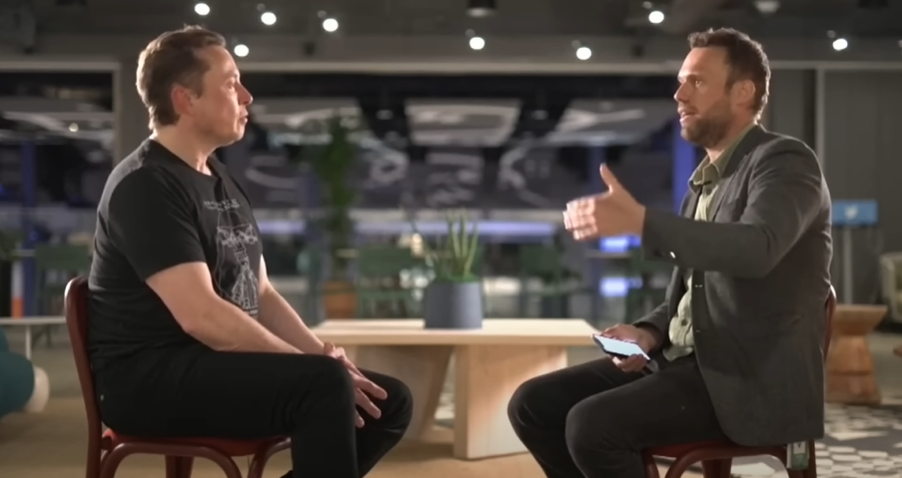 POLICY
POLICY
 POLICY
POLICY
 POLICY
POLICY
Twitter Inc. owner Elon Musk sat with the BBC on Tuesday night at the company’s offices in San Francisco in what turned out to be a fairly candid interview.
In the 90 minutes that the BBC spoke to Musk, just about all of the hot topics were covered. He talked about the massive layoffs at the company, saying that had to be done. He admitted that the firing part was “not fun at all” but that Twitter right now is “breaking even,” and he hopes the company will be cash-flow positive this quarter.
Since the takeover, Musk has certainly lost his place in the media as the golden boy of tech. Many of the articles about him have been negative, which Musk said has been “painful” at times, although he admitted that he had “shot myself in the foot” at times and should probably stay away from Twitter at 3 a.m.
I said BBC could come Twitter, then, to my surprise, a reporter shows up
— Elon Musk (@elonmusk) April 12, 2023
“I’ve been under constant attack,” he said. “It’s not like I have a stone-cold heart or something. It’s rough. If the media’s firing nonstop stories about why you’re a horrible person, it’s hurtful.” Still, he said if he were offered the $44 billion he paid for Twitter now, he wouldn’t take it, which is surprising given that he tried to back out of the deal.
Sometimes the interview was quite hard to watch, and it has to be said: The BBC interviewer hadn’t come prepared. He challenged Musk about the growing level of hate speech on the platform, to which Musk asked him to provide some evidence or even just one example he had seen. The interviewer stuttered and backtracked and then said that he’s seen “slightly sexist” remarks on Twitter. Musk asked, “So you think if something is slightly sexist, it should be banned?” The interviewer seemed stuck for words.
He was equally stuck for words when he challenged Musk on misinformation on Twitter, to which Musk asked him about the changing nature of information, such as the narratives around COVID-19. Musk reminded the interviewer, “If you lose free speech, it doesn’t come back. No system is going to be perfect.”
We also learned that Musk voted for Joe Biden in the last election and that he thinks it’s a bad idea for the U.S. to ban TikTok. He said Donald Trump “may or may not come back” and added that he thinks social media platforms should not be partisan when it comes to politics.
When asked about his recent decision to label the BBC as “state-affiliated media,” he just asked, “If we use the same words as the BBC uses to describe itself, that presumably would be OK.” The BBC, despite the government forcing the U.K. public to pay for its funding, has denied it doesn’t have editorial independence. After the interview, Musk removed the “state-affiliated media” from the BBC’s account.
Prior to the BBC being tarred with that brush, Musk had given the label to NPR. NPR was equally miffed about the designation and explained it wasn’t true. Today it removed its Twitter account, stating the label was “undermining our credibility and the public’s understanding of our editorial independence.”
Support our mission to keep content open and free by engaging with theCUBE community. Join theCUBE’s Alumni Trust Network, where technology leaders connect, share intelligence and create opportunities.
Founded by tech visionaries John Furrier and Dave Vellante, SiliconANGLE Media has built a dynamic ecosystem of industry-leading digital media brands that reach 15+ million elite tech professionals. Our new proprietary theCUBE AI Video Cloud is breaking ground in audience interaction, leveraging theCUBEai.com neural network to help technology companies make data-driven decisions and stay at the forefront of industry conversations.